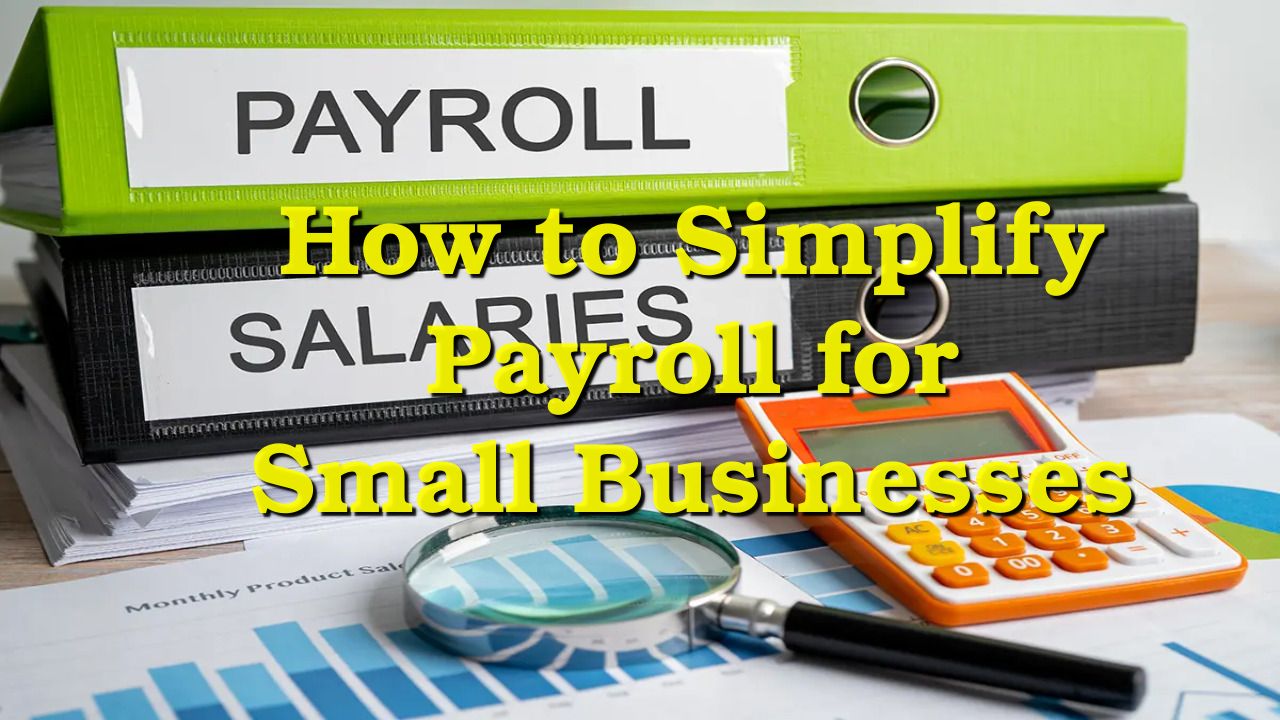Managing payroll can be a daunting task, especially for small business owners who often wear multiple hats within their companies. Ensuring that employees are paid accurately and on time is crucial for maintaining a happy and motivated workforce. However, the complexities of payroll processing, tax regulations, and compliance requirements can quickly become overwhelming. In this article, we will explore some practical strategies to simplify payroll for small businesses, allowing them to focus on their core operations and growth.
Embrace Payroll Software

One of the most effective ways to simplify payroll is by adopting dedicated payroll software. Manual payroll calculations consume valuable time and increase the likelihood of errors. Payroll software automates the entire process, from calculating wages and deductions to generating pay stubs and tax forms. Look for software that integrates with your accounting system and offers features like direct deposit and tax filing support. By the way, check out the article on how to scale your business and find some useful paystub generator templates.
Outsource Payroll Services
Outsourcing payroll services can be a game-changer for small businesses with limited resources and a handful of employees. Professional payroll service providers specialize in managing payroll for businesses of all sizes. By outsourcing payroll, you can offload time-consuming tasks, ensure compliance with tax laws, and gain access to expert assistance whenever needed.
Maintain Organized Records

Keeping well-organized records is a good business practice and essential for streamlining payroll. Create a dedicated system for organizing employee information, pay stubs, tax forms, and other payroll-related documents. This organization will make it easier to access data during audits, tax filings, or any employee inquiries, saving you time and effort.
Automate Tax Withholdings
Tax withholdings are a critical aspect of payroll that can be prone to errors if done manually. To simplify this process, ensure that you use the latest tax withholding tables and automate the calculations within your payroll software. This way, you can be confident that the correct amount is withheld from each employee’s paycheck, reducing the risk of under or over-withholding.
Educate Employees About Self-Service Portals

Consider implementing a self-service portal where employees can access their pay stubs, update their personal information, and view their tax forms. This empowers employees to manage their payroll-related needs independently, reducing the administrative burden on your HR or payroll team. It also enhances transparency and allows employees to resolve payroll-related questions promptly.
Schedule Regular Payroll Audits
Regular payroll audits are crucial to identify and rectify any discrepancies or errors promptly. Set aside time each month or quarter to review payroll records, ensuring that each employee’s pay, deductions, and benefits align with their employment contracts. Auditing payroll routinely helps maintain accuracy and compliance with labor laws.
Stay Informed About Payroll Regulations
Payroll regulations are subject to change, and staying informed about updates is vital for compliance. Subscribe to reliable sources of information, such as government websites and industry publications, to stay updated on payroll-related laws, tax rates, and other relevant changes. This awareness will help you adapt your payroll processes accordingly and avoid potential penalties for non-compliance.
To Wrap Up
Simplifying payroll for small businesses is not an unattainable goal. By leveraging technology, outsourcing, and maintaining a proactive approach to compliance, you can streamline your payroll operations effectively. Embracing payroll software and automating tasks such as tax withholdings will save time and reduce the likelihood of errors.
Outsourcing payroll services to reputable providers allows you to focus on your core business functions while ensuring accurate and timely employee payments. Organized record-keeping and employee self-service portals contribute to improved transparency and efficiency.
Finally, staying informed about payroll regulations is crucial for compliance. Regular audits will help identify and rectify any discrepancies, ensuring your payroll processes remain accurate and in line with legal requirements. By implementing these strategies, small businesses can simplify their payroll operations and concentrate on driving business growth and success.

